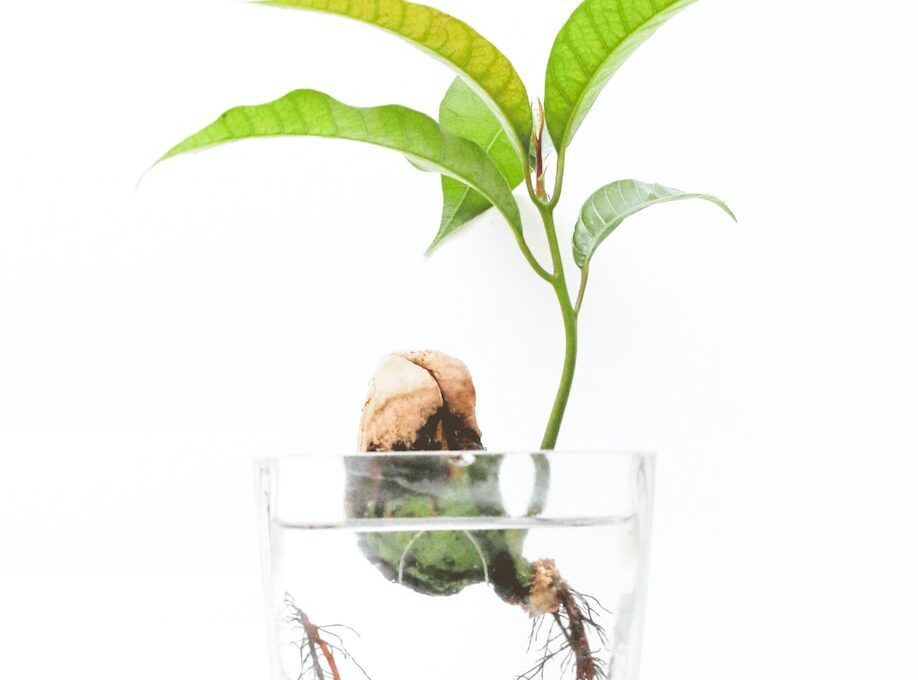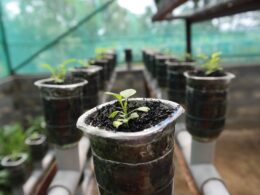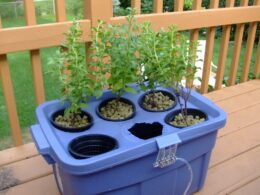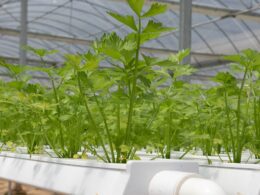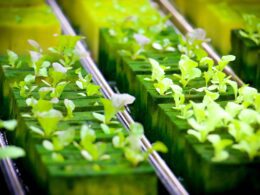Are you interested in hydroponic gardening but concerned about the use of nutrients?
Perhaps you have heard that hydroponics requires the use of chemical fertilizers, which can be harmful to the environment and your health.
But is it possible to grow hydroponics without nutrients?
The answer is yes, but it requires a different approach to traditional hydroponic gardening.
In this article, we will explore the basics of hydroponics and the role of nutrients in plant growth.
We will also discuss alternative approaches to nutrient delivery and best practices for growing hydroponics without nutrients.
Whether you are a beginner or an experienced hydroponic gardener, this article will provide valuable insights into the world of nutrient-free hydroponic gardening.
So, let’s dive in and explore the possibilities of growing hydroponics without nutrients.
Understanding the Basics of Hydroponics
To fully comprehend the fundamentals of hydroponic cultivation, it’s essential to gain a thorough understanding of the basic principles that govern this innovative method of plant propagation.
Hydroponic systems rely on a nutrient solution to provide the essential nutrients that plants need to grow. Without these nutrients, plants cannot thrive and will eventually wither away.
When selecting plants for hydroponic cultivation, it’s important to choose varieties that are well-suited to this environment. Some plants may require specific pH levels or nutrient ratios to grow properly, while others may be more tolerant of different conditions.
It’s also important to consider the size and growth habits of the plants, as well as the available space in the hydroponic system.
Although some may wonder if it’s possible to grow hydroponics without nutrients, the answer is a resounding no. Nutrients are the lifeblood of hydroponics, providing the essential elements that plants need to survive and grow. Without proper nutrition, hydroponic plants will struggle to survive, making it essential to ensure that the nutrient solution is properly balanced and maintained.
The Role of Nutrients in Hydroponic Growth
Nutrients are essential for the growth of plants in hydroponic systems, providing them with the necessary components to thrive. Without nutrients, plants would not be able to develop properly and would eventually die.
However, some growers are experimenting with nutrient-free hydroponics, which involves growing plants without added nutrients and relying solely on the nutrients naturally present in the water and growing medium.
One of the benefits of nutrient-free hydroponics is that it can be a more cost-effective way to grow plants. Traditional nutrient-based hydroponics requires the constant purchase of expensive nutrient solutions, while nutrient-free hydroponics eliminates this expense. Additionally, some growers believe that nutrient-free hydroponics can produce healthier and more natural tasting crops, as they are not exposed to potentially harmful chemicals found in some nutrient solutions.
However, it is important to note that nutrient-free hydroponics may not be as efficient as traditional nutrient-based hydroponics. Plants grown without added nutrients may not grow as quickly or produce as much as those grown with nutrient solutions. Additionally, nutrient-free hydroponics requires a certain level of skill and knowledge to ensure that the plants are still receiving the necessary nutrients to grow properly.
Overall, while nutrient-free hydroponics may have some benefits, it is important to weigh the pros and cons before deciding which method to use for your hydroponic setup.
Alternative Approaches to Nutrient Delivery
If you’re looking for a more innovative way to boost your plant growth, consider exploring the various alternative approaches to nutrient delivery available in the hydroponic world.
For instance, you can opt for organic options like fish emulsion, seaweed extract, and compost tea. These organic options are not only cost-effective but also eco-friendly. They provide the necessary nutrients to your plants while also promoting soil health and biodiversity.
Another approach you can take is to create your DIY solutions. This approach requires some research and experimentation, but it can also be an exciting and rewarding experience.
One DIY solution you can try is creating your organic hydroponic nutrient solution using household items like molasses, apple cider vinegar, and Epsom salt. By making your nutrient solution, you have complete control over the quality and quantity of nutrients your plants receive.
Incorporating alternative approaches to nutrient delivery in your hydroponic system can significantly improve your plant growth while also reducing your environmental impact. With organic options and DIY solutions, you have a variety of choices to customize your hydroponic setup to suit your preferences and needs.
So, go ahead and explore these options to take your hydroponic gardening to the next level.
Do Fish in Hydroponics Systems Provide Nutrients for Plant Growth?
Fish in hydroponics systems can indeed provide essential nutrients for plant growth. Through a process known as aquaponics, fish waste and excretions are broken down by bacteria and transformed into nutrient-rich water. This water is then supplied to the plants, which absorb the nutrients they need for healthy development. The fish in hydroponics systems play a vital role in sustaining a balanced ecosystem and promoting optimal plant growth.
Best Practices for Growing Hydroponics without Nutrients
Growing plants hydroponically without nutrients can be difficult, but it’s possible with the right approach. The key is to ensure proper pH management and water quality. Without the right balance of these elements, your plants may not grow as well or may even die.
To optimize your hydroponic setup without nutrients, it’s important to monitor and manage the pH levels of your water. The ideal pH range for most plants is between 5.5 and 6.5. If your water is too acidic or too alkaline, your plants may not be able to absorb the nutrients they need to grow.
Regular testing and adjustment of your pH levels is crucial for success. In addition to pH management, water quality is also important. Make sure your water source is clean and free from any harmful chemicals or contaminants. If possible, use filtered or distilled water to ensure the highest quality.
By following these best practices, you can grow healthy and thriving plants without relying on traditional nutrient solutions.
Pros and Cons of Growing Hydroponics without Nutrients
While there are advantages to cultivating plants hydroponically without nutrient solutions, it’s important to weigh these benefits against potential drawbacks.
One of the main benefits of growing hydroponics without nutrients is the reduced environmental impact. Nutrient solutions can have harmful effects on the environment, such as contaminating water sources or causing soil erosion. By eliminating the use of these solutions, you can grow plants in a more sustainable way.
However, growing hydroponics without nutrients may not be as cost-effective as traditional hydroponic methods. Nutrient solutions are designed to provide plants with all the essential nutrients they need to grow, which can lead to higher yields and healthier plants. Without these solutions, you may need to invest in more expensive equipment or spend more time monitoring and adjusting the pH levels of your water to ensure your plants are getting the nutrients they need.
When deciding whether to grow hydroponics without nutrients, it’s important to weigh the potential benefits against the costs and limitations. While this method may be more environmentally friendly, it may not be as cost-effective or produce the same high yields as traditional hydroponic methods. Ultimately, the choice depends on your specific goals and preferences as a grower.
Frequently Asked Questions
What are the most common types of hydroponic systems used for growing plants without nutrients?
Hydroponic systems have become increasingly popular for growing nutrient-free plants. There are several types of hydroponic systems, each with their own advantages and disadvantages.
One of the most common types is the deep water culture system, where plants are grown in a nutrient-rich solution that is oxygenated by an air pump.
Another popular system is the drip irrigation system, which delivers a nutrient solution directly to the plant’s roots through a series of tubes.
Both of these systems allow plants to thrive without the need for soil or traditional fertilizers. With the right setup and care, hydroponic systems can provide a safe and efficient way to grow healthy plants without the use of harmful chemicals or pesticides.
Is it possible to grow all types of plants hydroponically without using nutrients?
Looking to grow plants hydroponically without using any nutrients? Well, it may seem like a good idea to avoid chemicals and additives, but the truth is that all plants need some sort of nutrients in order to grow.
However, there is a way to grow hydroponically while still staying organic and nutrient-free: organic hydroponics. This method uses organic materials like coconut coir or peat moss as the growing medium. It relies on natural processes like composting to produce the necessary nutrients for plant growth.
While it may require more effort and attention to detail, organic hydroponics is a great way to grow healthy, thriving plants without relying on synthetic nutrients.
What are some natural alternatives to traditional hydroponic nutrients that can be used for plant growth?
Looking for natural nutrient alternatives for your hydroponic system? There are plenty of options available that can be just as effective as traditional hydroponic nutrients.
Organic hydroponics use natural materials like compost tea or fish emulsion to provide plants with the necessary nutrients.
Other alternatives include using worm castings, seaweed extracts, or even growing cover crops in between hydroponic cycles to naturally enrich the soil.
Not only are these options more sustainable, but they can also lead to healthier and tastier harvests. So if you’re looking to go green with your hydroponic setup, give natural nutrient alternatives a try and see how they work for you.
Can hydroponic plants grown without nutrients still produce the same yield as plants grown with nutrients?
If you’re considering growing hydroponic plants without nutrients, it’s important to understand the impact of nutrient deficiency on plant growth and yield. While it’s possible to grow plants without traditional hydroponic nutrients, it’s unlikely that you’ll achieve the same yield as you would with them.
Organic options are available for those who prefer a natural approach, but it’s essential to ensure that plants receive the necessary nutrients for healthy growth. Nutrient deficiency can lead to stunted growth, reduced yield, and even plant death.
So, while it’s possible to grow hydroponic plants without nutrients, it’s not recommended if you’re looking for optimal results.
Are there any potential drawbacks or limitations to growing hydroponics without the use of nutrients?
When it comes to growing plants hydroponically without the use of nutrients, there are a few potential drawbacks to consider. For one, plants may not grow as quickly or as large as they would with nutrient supplementation.
Additionally, without the added nutrients, plants may be more susceptible to disease and pests. While some may argue that traditional soil-based gardening is a viable alternative, hydroponic systems still offer benefits such as water conservation and year-round growing capabilities.
Ultimately, the decision to grow with or without nutrients depends on individual needs and preferences.
Conclusion
Congratulations! You now know that growing hydroponics without nutrients is possible, but it takes a little bit of extra effort and attention.
Remember that hydroponics is all about providing the right environment for your plants to thrive, and that includes delivering the nutrients they need in a way that works for you. Whether you choose to go the traditional route with nutrient solutions or experiment with alternative approaches like compost teas or organic fertilizers, the key is to stay informed, stay proactive, and keep an eye on your plants’ progress.
As with any gardening method, there are pros and cons to growing hydroponics without nutrients. On the one hand, you can save money on expensive nutrient solutions and have more control over what goes into your plants. On the other hand, you may need to put in more time and effort to ensure your plants get the nutrients they need, and there is a risk of nutrient deficiencies or imbalances if you’re not careful.
Ultimately, it’s up to you to weigh the benefits and drawbacks and decide what approach works best for your goals, your budget, and your gardening style. Happy growing!





